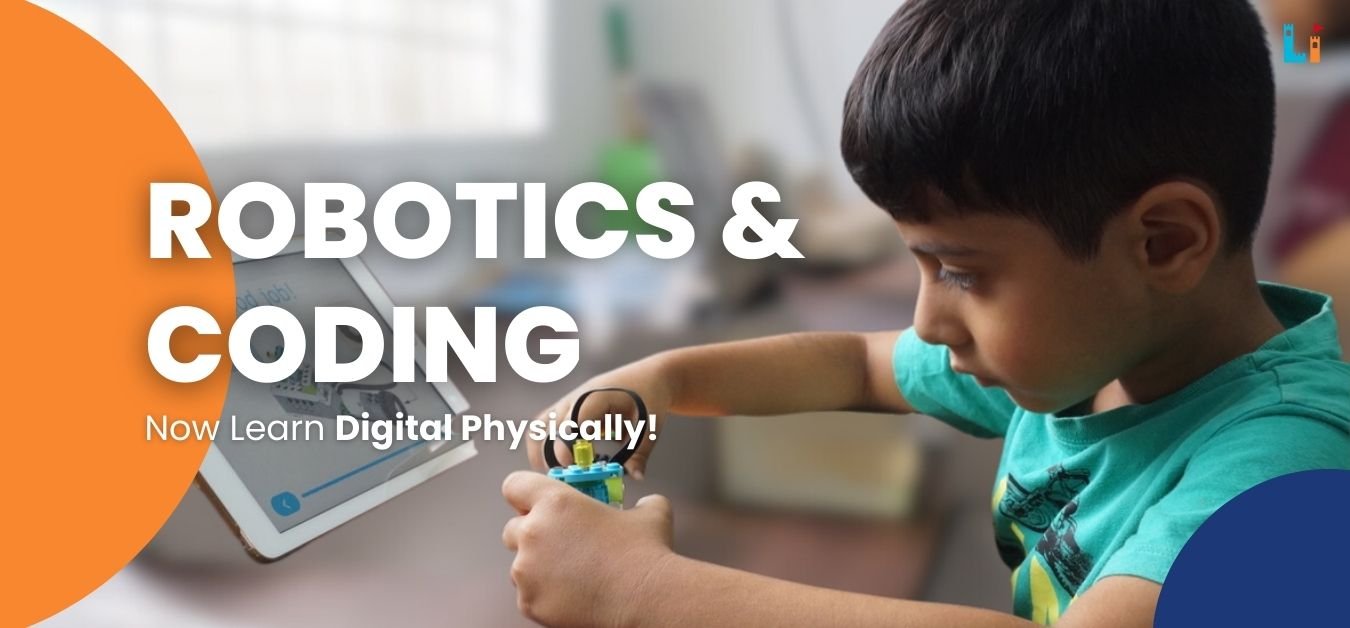As digital skills and technological literacy become more critical than ever, the demand for high-quality education in robotics and coding continues to rise. While online courses provide unmatched flexibility, offline robotics and coding classes offer unique advantages. These in-person sessions create an engaging, hands-on learning environment essential for mastering complex concepts. To give your child a strong foundation in programming, explore our Scratch Programming Course for Kids and help them develop essential coding skills through interactive, project-based learning.
The Tangible Benefits of Offline Learning
Hands-On Experience
One of the most significant advantages of offline robotics and coding classes is the hands-on experience they provide. Students can physically interact with robotic kits, components, and tools, which enhances their understanding of mechanical and electrical systems. This tactile engagement is often missing in online classes, where simulations and virtual environments can only approximate the real-world experience.
Immediate Feedback and Mentorship
In an offline setting, students benefit from immediate feedback and personalized mentorship. Instructors can observe students’ work in real-time, offering instant corrections and tailored advice. This direct interaction fosters a deeper understanding and allows for immediate troubleshooting, which is invaluable in fields that often involve complex problem-solving.
Collaboration and Teamwork
Offline classes also encourage collaboration and teamwork. Students can work on group projects, share ideas, and learn from each other in a dynamic and interactive environment. These collaborative skills are essential in the professional world, where robotics and coding projects often require coordinated efforts from diverse teams.
The Educational Journey: From Theory to Practice
Building a Strong Foundation
Offline robotics and coding classes typically start with foundational concepts, ensuring that students have a solid understanding of the basics before moving on to more advanced topics. This structured approach helps build confidence and competence, laying the groundwork for more complex projects and innovations.
Advanced Projects and Real-World Applications
As students progress, they engage in more advanced projects that mimic real-world applications. Offline classes often provide access to sophisticated tools and equipment, enabling students to design, build, and program robots that can perform a variety of tasks. This progression from theory to practice is crucial for developing a comprehensive skill set.
The Social and Emotional Aspects of Offline Learning
Building a Learning Community
Offline classes foster a sense of community among students. This social aspect of learning is important for motivation and engagement, as students can share their enthusiasm and challenges with peers who have similar interests. Building these relationships can lead to lasting friendships and professional networks.
Enhancing Soft Skills
In addition to technical skills, offline classes help students develop soft skills such as communication, leadership, and time management. These skills are often cultivated through group activities and presentations, which are integral parts of the offline learning experience.
Choosing the Right Program
When selecting an offline robotics and coding class, consider factors such as the curriculum, instructor qualifications, class size, and available resources. Look for programs that offer a balance of theoretical knowledge and practical experience, and that are well-regarded in the educational community.
Our Best Courses to Consider
Little Inventors offers a range of excellent robotics and coding classes designed to cater to different age groups and skill levels. Here are a few standout courses:
Robotics & Coding Junior (Ages 5-8)
This course introduces young learners to the basics of robotics and coding through fun and engaging projects. Children will build simple robots and learn to program them using age-appropriate tools and languages.
Robotics & Coding Explorer (Ages 9-12)
Ideal for middle school students, this course dives deeper into robotics concepts. Students will work on more complex projects, including building and programming robots to complete specific tasks. The curriculum covers fundamental coding concepts using platforms like Scratch and Arduino.
Robotics & Coding Innovator (Ages 13-16)
For teenagers, this advanced course covers intricate aspects of robotics and coding. Students will design and build sophisticated robots, explore artificial intelligence, and learn advanced programming languages such as Python and Java. This course is perfect for those considering a career in robotics or computer science.
Conclusion
While online classes offer convenience, offline robotics and coding classes provide an irreplaceable hands-on learning experience. The benefits of immediate feedback, collaboration, and access to physical resources make offline education a powerful option for those looking to master the intricacies of robotics and coding. By bridging the digital and physical worlds, offline classes not only impart technical skills but also foster the social and emotional growth necessary for success in today’s tech-driven world.
In choosing the right program, students and parents should weigh the importance of these hands-on, interactive experiences and consider how they align with their educational goals. With the right offline class, the journey into robotics and coding can be both educational and profoundly rewarding.
For more information on the courses offered by Little Inventors, visit our website. Explore their range of programs to find the perfect fit for your child’s interests and aspirations.

